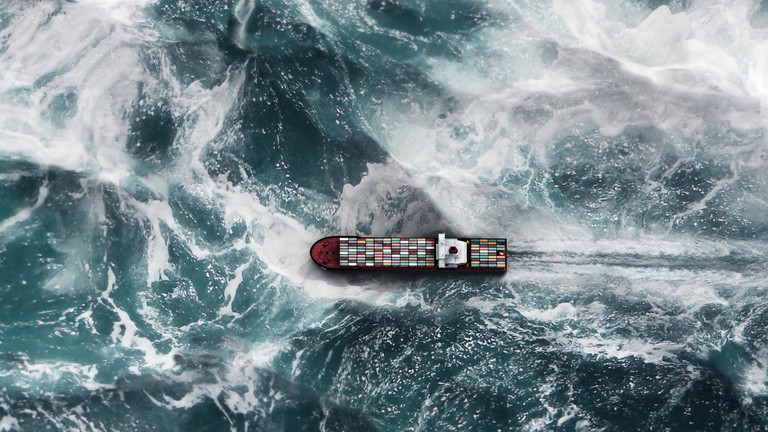The Red Sea, a vital artery for global trade, is currently facing a crisis of unprecedented proportions. Maersk, a leading shipping giant, has sounded the alarm, warning businesses to brace themselves for an extended period of disruption. Let's delve into the details and explore how this crisis is reshaping the maritime landscape.
Maersk's Advisory: Preparing for Prolonged Disruption
Maersk, a Danish shipping major, is urging its customers to prepare for the long haul. With attacks by Houthi rebels disrupting the region, the company anticipates that the crisis could linger well into the latter half of this year. This warning comes on the heels of Maersk's decision to suspend vessel transits through the Red Sea in January, following targeted attacks on its ships by the rebel group.
Rerouting Strategies: Navigating Challenges
In response to the escalating crisis, major shipping companies have been compelled to devise alternative routes. Many vessels are now embarking on longer and costlier journeys around the southern tip of Africa via the Cape of Good Hope. While these detours incur additional expenses, they offer a workaround amidst the Red Sea turmoil.
Houthi Threats and Geopolitical Tensions
The situation is further complicated by escalating tensions in the region. Houthi militants have threatened to escalate their attacks following airstrikes by the US and UK on Houthi-linked targets in Yemen. This geopolitical backdrop exacerbates uncertainties, prolonging the disruption in the Red Sea.
Industry Impact: Rising Costs and Supply Chain Concerns
The ripple effects of the Red Sea crisis are felt across the global shipping industry. With around 15% of commercial shipping traversing via the Suez Canal, the blockade has led to increased costs and soaring insurance premiums. Major freight companies are grappling with the financial implications of rerouting their ships and adjusting their supply chain dynamics.
Mitigating Risks: A Call for Strategic Planning
In light of these challenges, businesses must adopt a proactive approach to mitigate risks. Charles van der Steene, Maersk's regional president for North America, emphasizes the importance of factoring in longer transit times and recalibrating supply chain budgets. Strategic planning and agile decision-making are imperative to navigate the complexities of the current maritime landscape.
Economic Fallout: Assessing the Impact
The economic ramifications of the Red Sea crisis are significant. Global trade witnessed a 1.3% decline from November to December 2023, attributable to the disruptions in merchant vessel operations. As businesses grapple with mounting challenges, there is a pressing need for concerted efforts to stabilize the situation and restore normalcy to maritime operations.
Looking Ahead: Charting a Course for Recovery
While the road ahead may be fraught with challenges, resilience and adaptability will be key to weathering the storm. As stakeholders across the shipping industry collaborate to address the crisis, there remains hope for a gradual restoration of stability in the Red Sea region. In the interim, businesses must remain vigilant, agile, and prepared to navigate the evolving dynamics of global trade.
Free Speech and Alternative Media are under attack by the Deep State. Chris Wick News needs your support to survive.
Please Contribute via GoGetFunding

